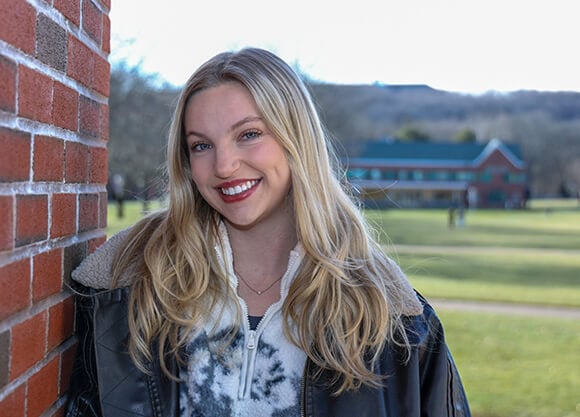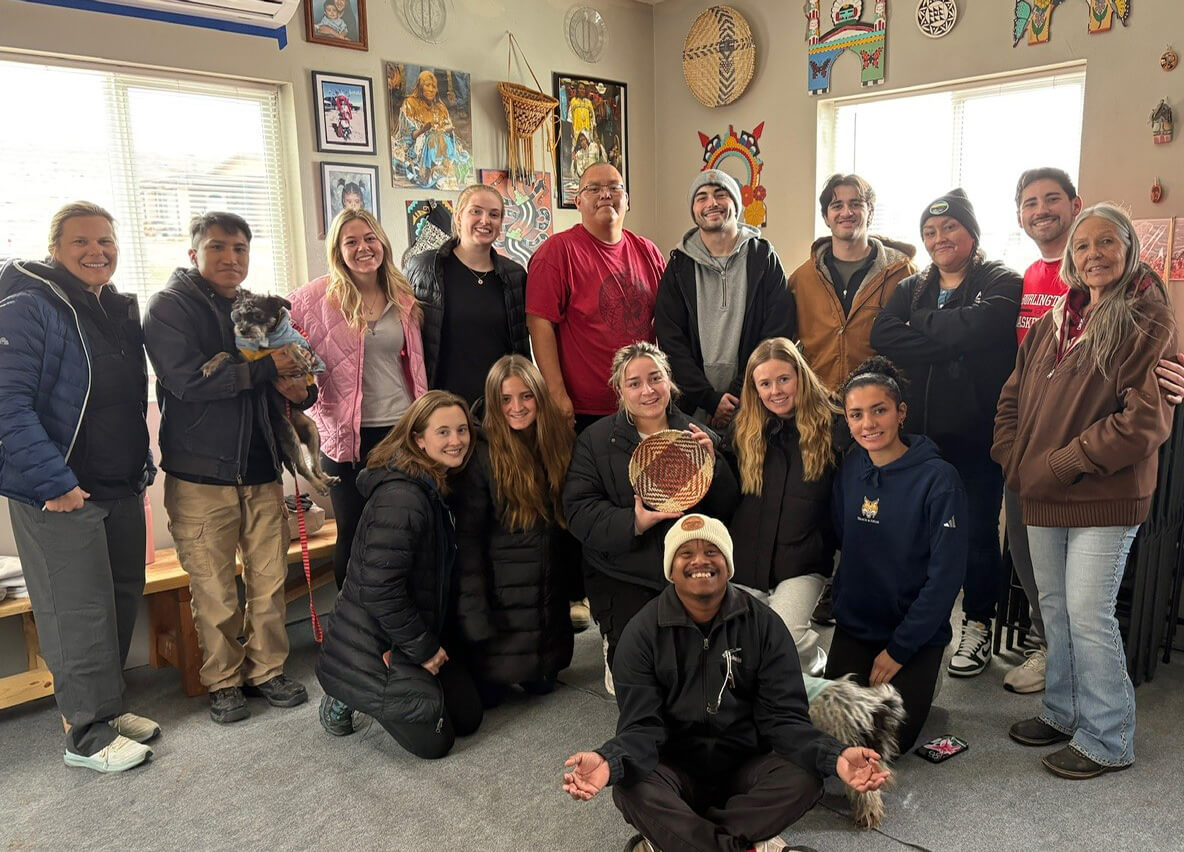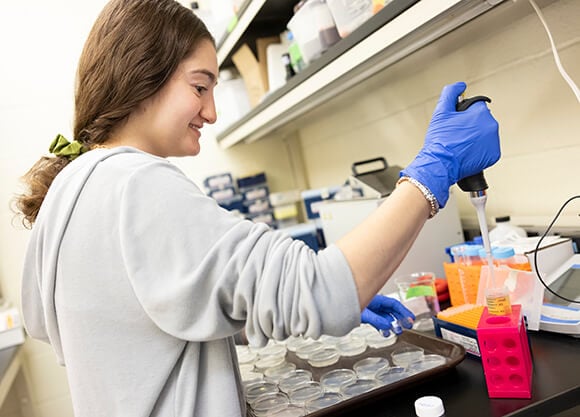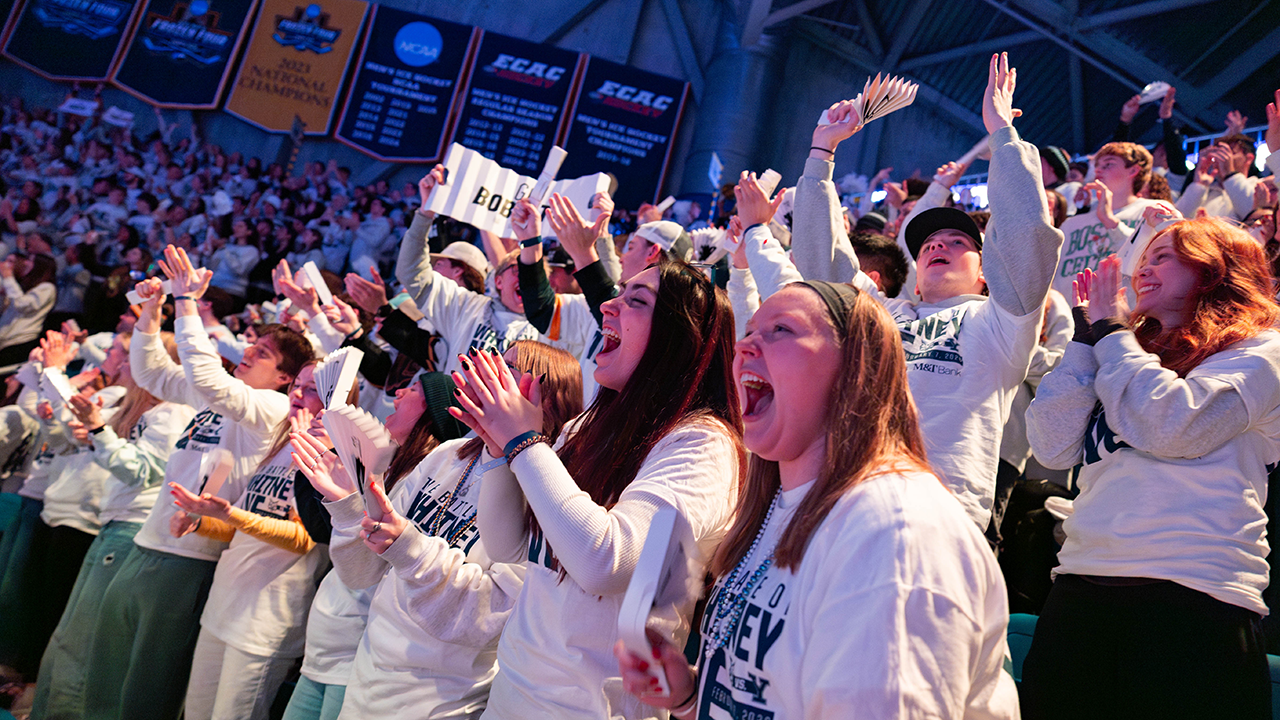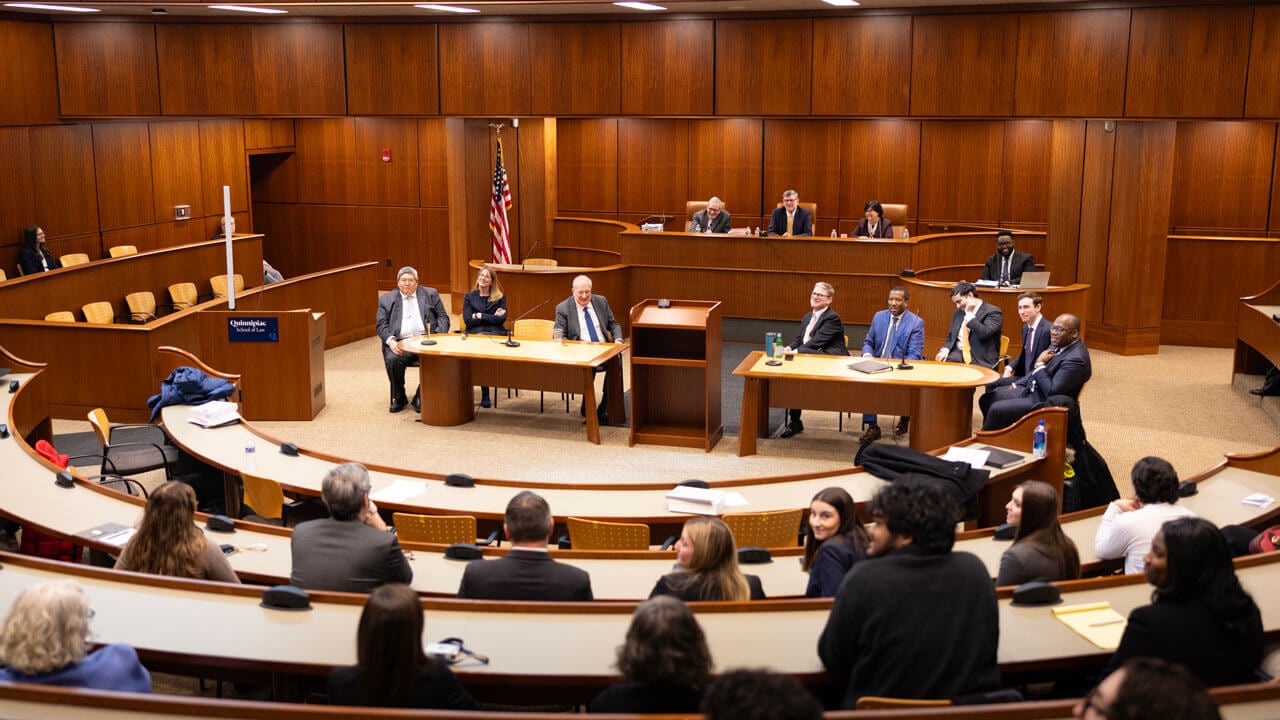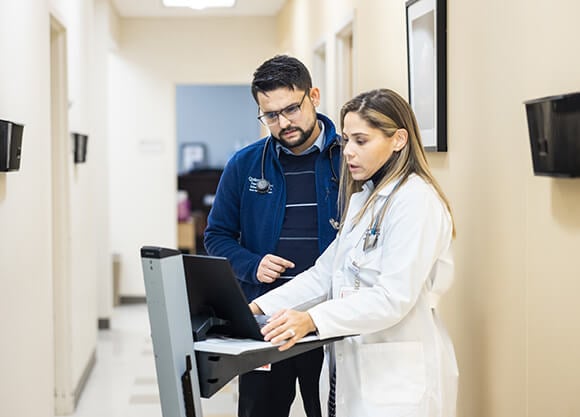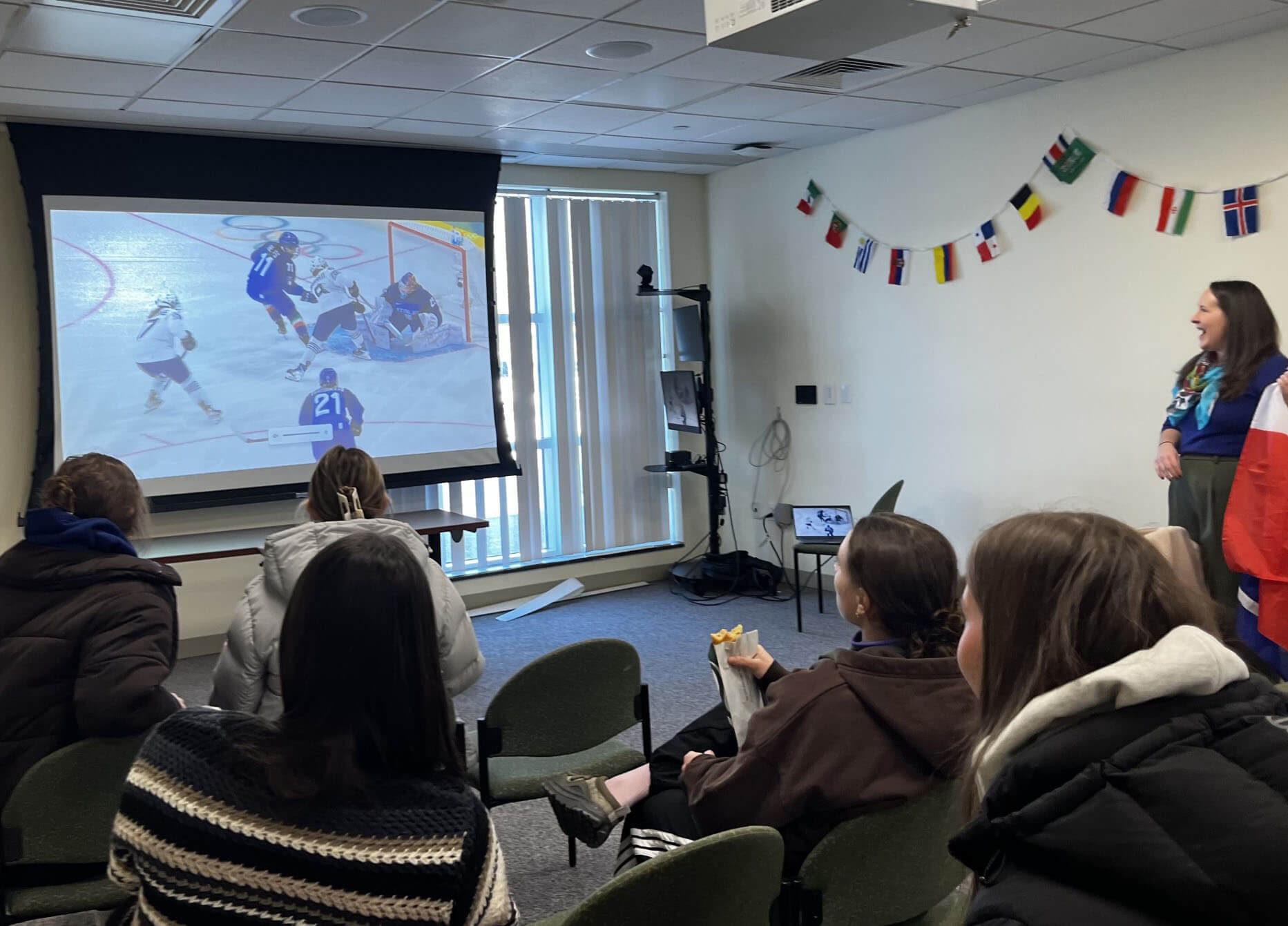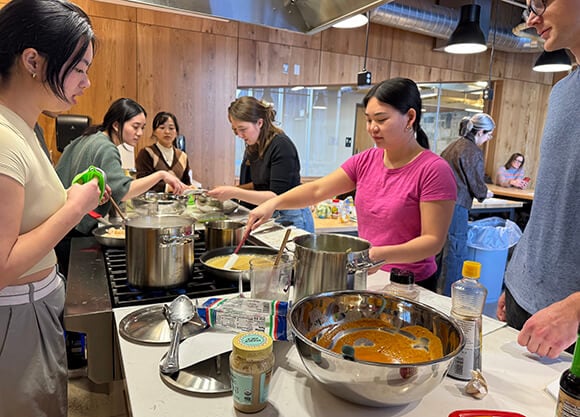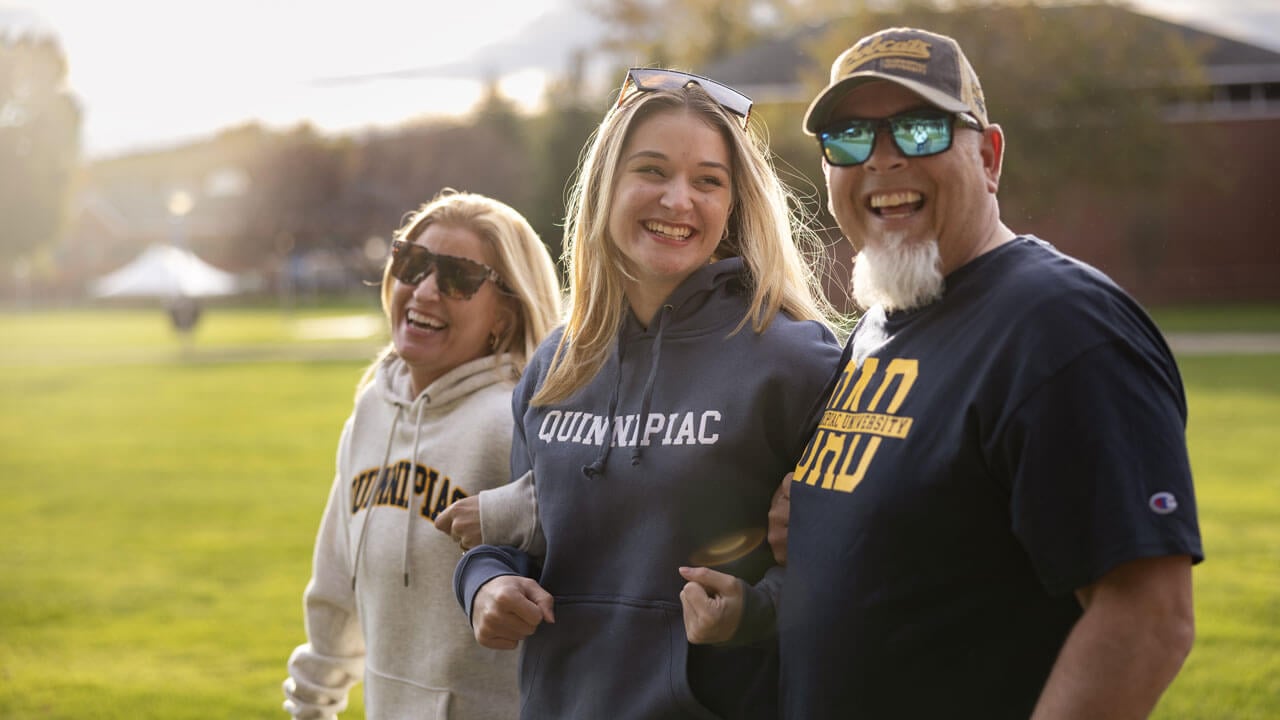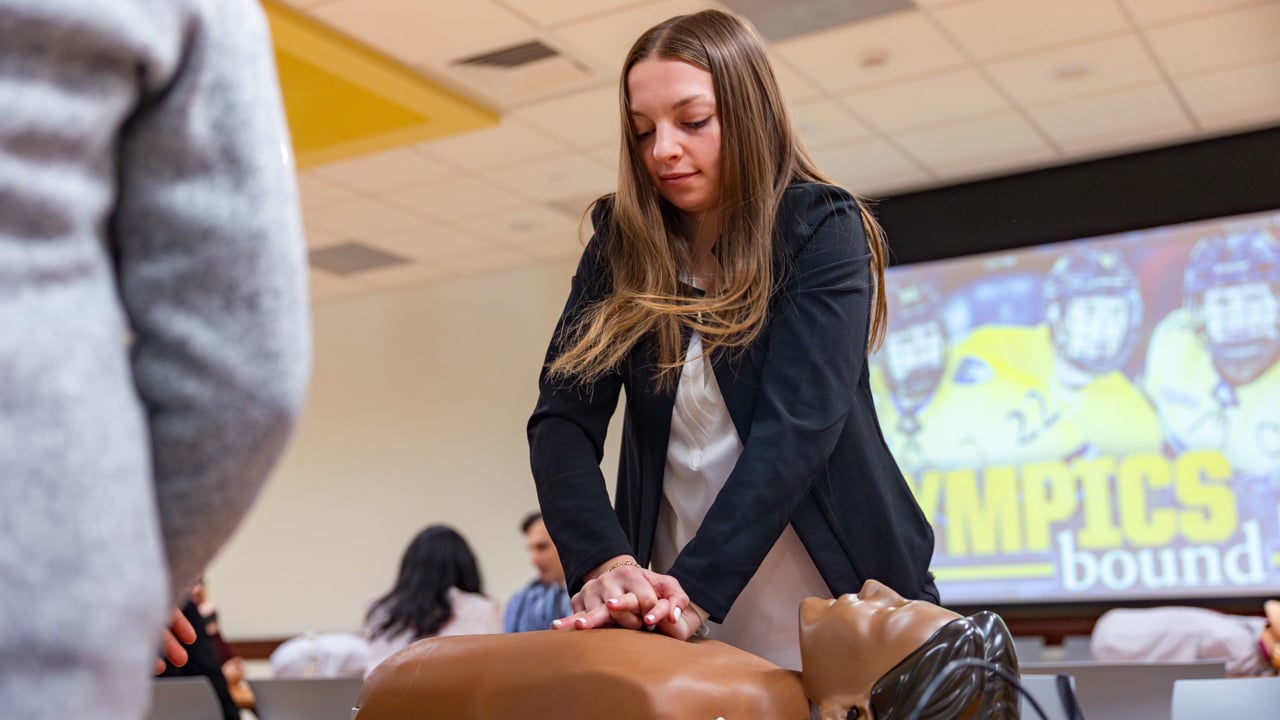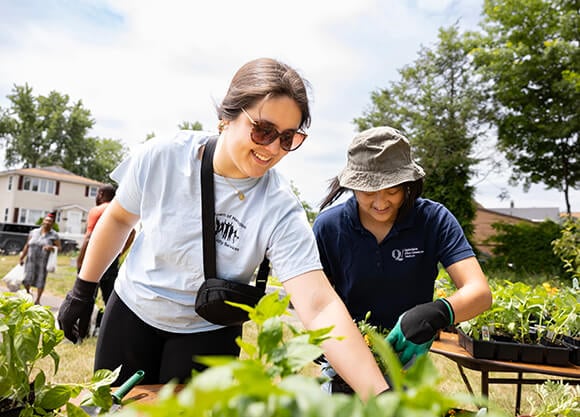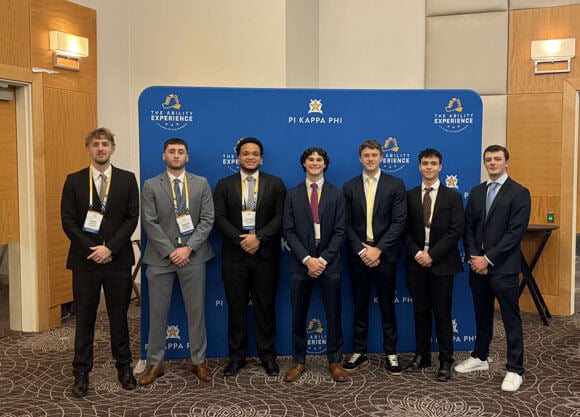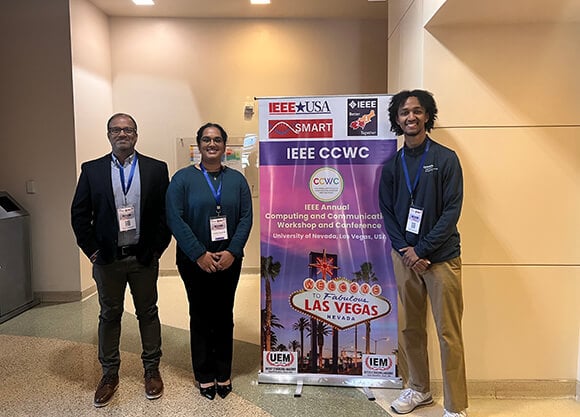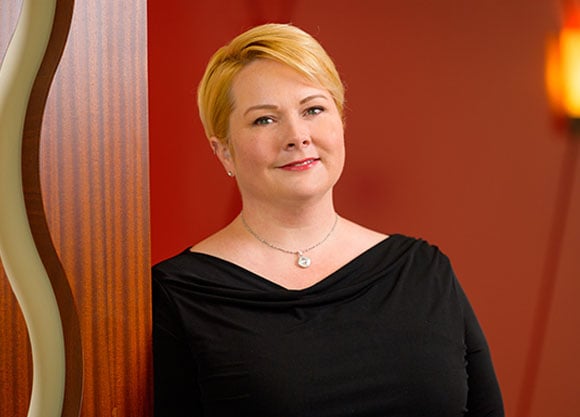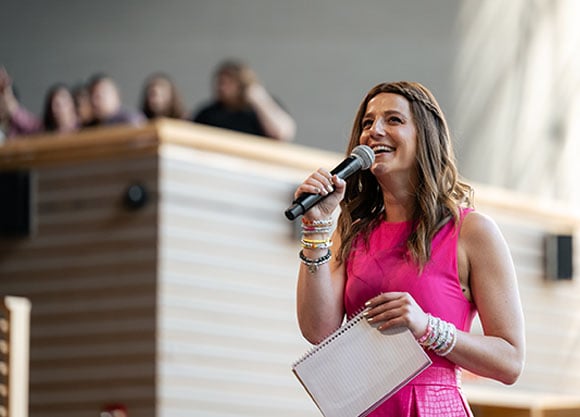
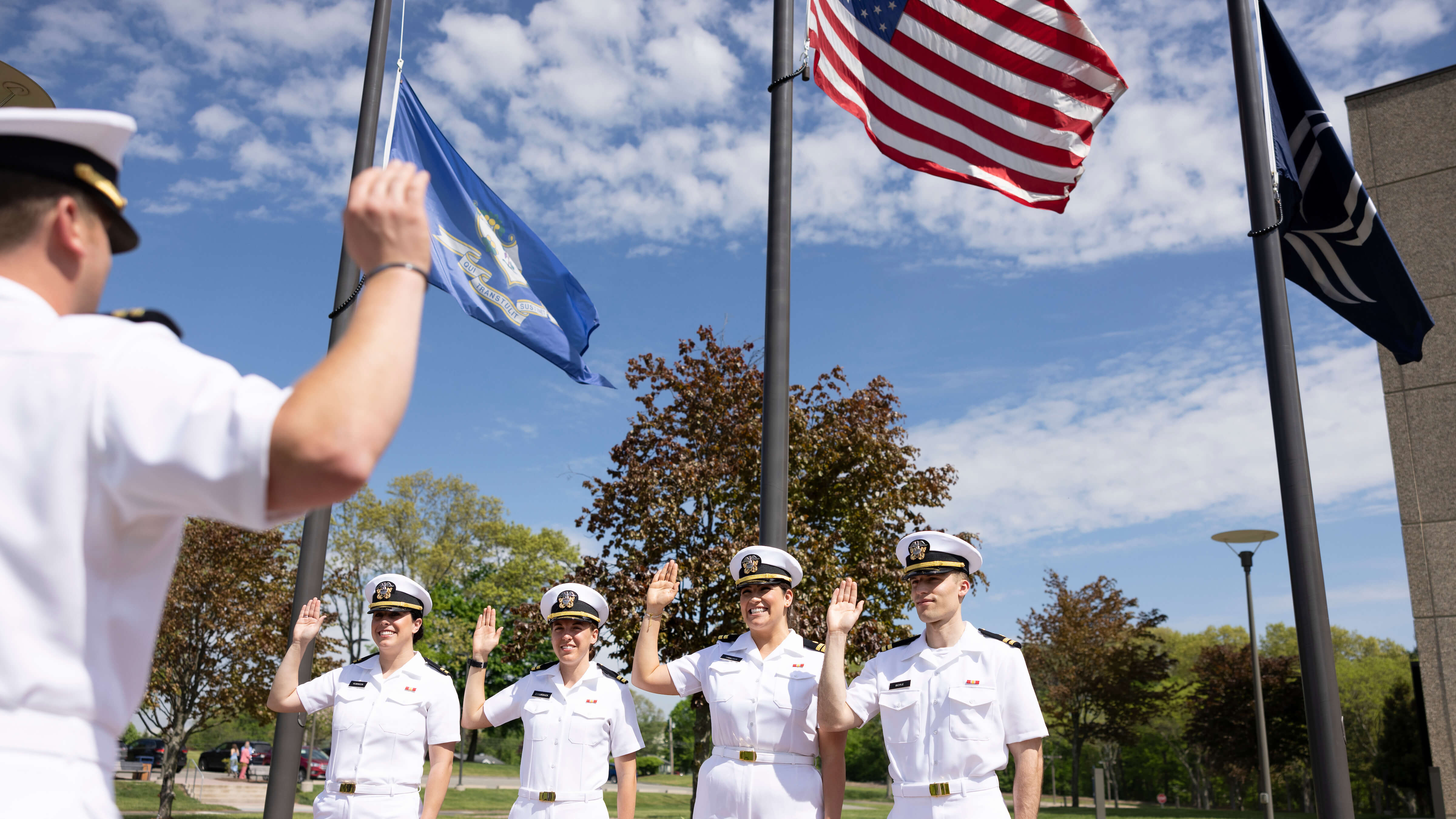
The Health Professionals Scholarship Program (HPSP) covers the cost of medical
school for students who commit to serving their country as military doctors upon graduation. At Quinnipiac, veterans and civilians take advantage of the opportunity, said Director of Veteran and Military Affairs, Jason Burke.
The following students were honored:
-
Alexander Achenbach, Emergency Medicine, U.S. Air Force
-
Christopher Boyle, Psychiatry, U.S. Navy
-
Shelby Cuddeback, ObGyn, U.S. Navy
-
Sal Falisi, Anesthesiology, U.S. Army
-
Breanna Robinson, GMO, U.S. Navy
-
Mary Traglia, GMO, U.S. Navy
-
Kayla Vasilakis, Surgery, U.S. Navy
HPSP students also receive a stipend to cover living expenses. Veterans can couple awarded GI Bill benefits with HPSP for a larger housing allowance, said Burke.
Alongside Director of Financial Aid of the School of Medicine Sylvie Hangen, Burke
strives to relieve HPSP students of administrative burden so they may focus on their studies. For example, they partner with Veteran Affairs to ensure continuity of financial assistance, as clinical rotations do not necessarily follow the academic calendar, he said.
“Parents of civilian students can be weary [of military service]. But I can honestly take a holistic look and highlight that there are way more pros than cons,” said Burke, who is a Navy veteran. “These students get to serve their country and work with wonderful people. In addition to [diverse] locations, military doctors are treating unique injuries not found in typical ER or general practice settings. You get to really hone your skills as a surgeon or practitioner.”
HPSP students from a civilian background are invited to veteran events hosted on campus so they may glean a better understanding of their future careers from their vet peers said Burke.
On May 18th, five HPSP students entering the Navy participated in a small ceremony before commencement. Navy medical recruiter and Adjunct Professor Matthew Bolton, a former Navy lieutenant, led the graduates in the Oath of Office as they officially became medical officers.
“We work to schedule exams around the students’ outside responsibilities. The students are highly dedicated to their studies and have an extra level of commitment to what they’re taking on through this program,” said Interim Assistant Dean for Student Affairs Renu Boatright.
All medical students are encouraged to participate in the HPSP program, as partial scholarships are available for those who join later in their grad school journey, said Burke.
In this Article
Related Articles


Connecticut Business Deans Summit collaborates to strengthen state’s educational and economic ecosystem Opens in a new tab or window.
Read the full story Connecticut Business Deans Summit collaborates to strengthen state’s educational and economic ecosystem Opens in a new tab or window.
Community Action Project leaders share the organization’s experience at the Connecticut Food Share and CAP’s overall impact Opens in a new tab or window.
Read the full story Community Action Project leaders share the organization’s experience at the Connecticut Food Share and CAP’s overall impact Opens in a new tab or window.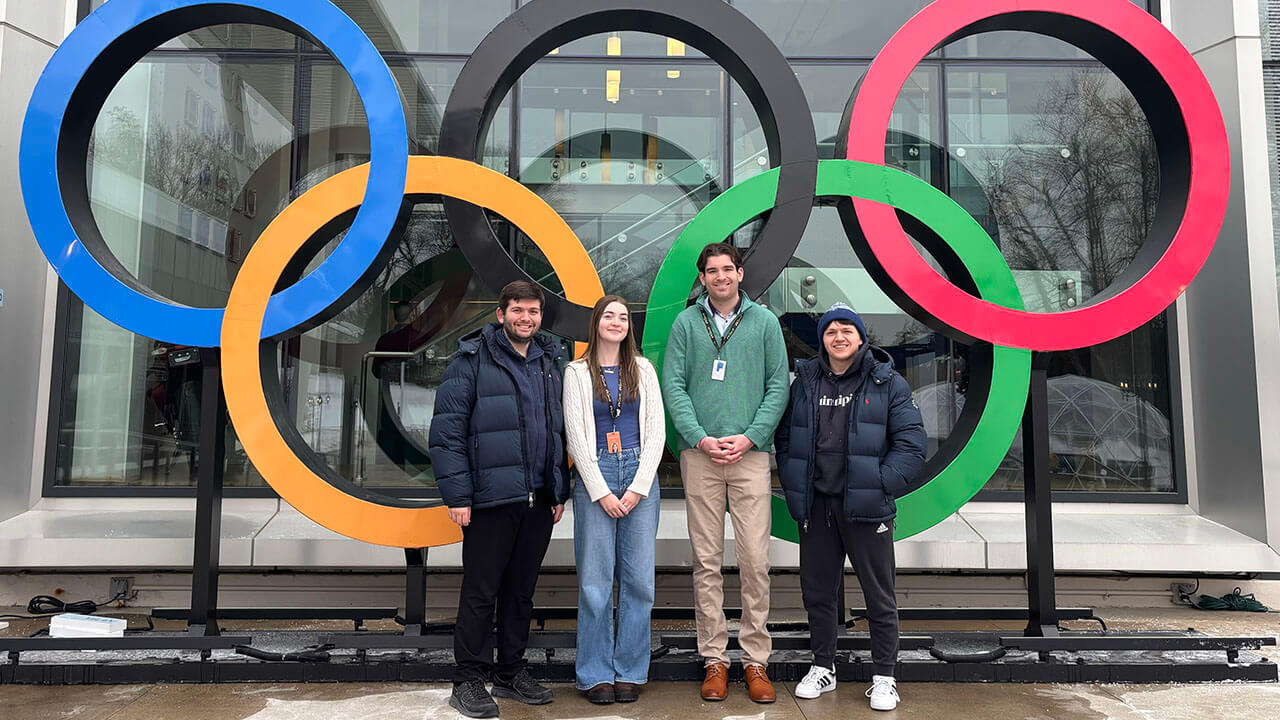
‘Dream Team’ of School of Communications alumni, current students contributing to NBC Sports’ Olympics coverage Opens in a new tab or window.
Read the full story ‘Dream Team’ of School of Communications alumni, current students contributing to NBC Sports’ Olympics coverage Opens in a new tab or window.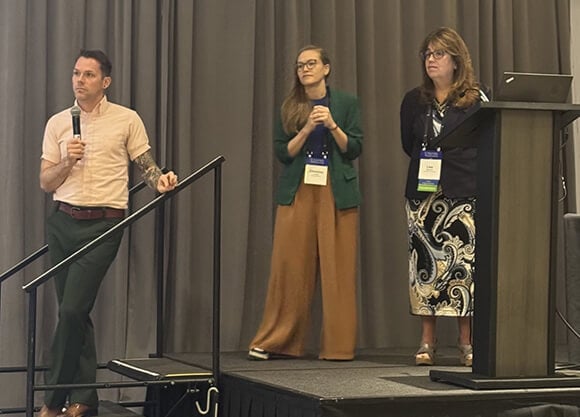
Transformative BSN program redesign gains national attention for innovative paradigm shift in nursing education Opens in a new tab or window.
Read the full story Transformative BSN program redesign gains national attention for innovative paradigm shift in nursing education Opens in a new tab or window.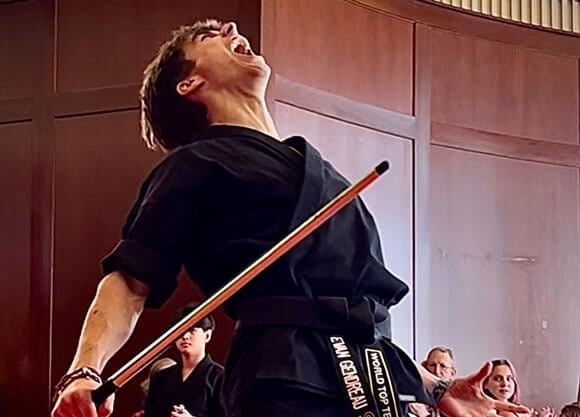
Social media influencer and Quinnipiac film major blends martial arts success with storytelling skills Opens in a new tab or window.
Read the full story Social media influencer and Quinnipiac film major blends martial arts success with storytelling skills Opens in a new tab or window.Stay in the Loop
Quinnipiac Today is your source for what's happening throughout #BobcatNation. Sign up for our weekly email newsletter to be among the first to know about news, events and members of our Bobcat family who are making a positive difference in our world.
Sign Up Now